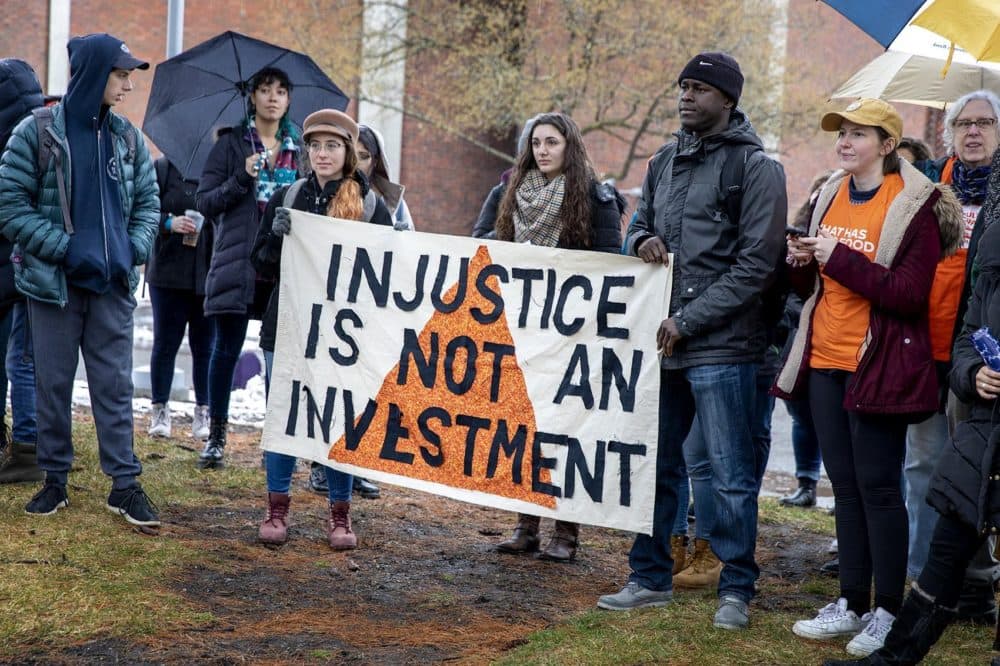There can be little doubt that neoliberalism has undermined, if not crippled, the notion of higher education as a democratic public sphere – a protective and courageous space where students can speak, write, and act from a position of agency and informed judgment. This should be a space where education does the bridging work of connecting schools to the wider society, connects the self to others, and addresses important social and political issues. It should also provide conditions for students to develop a heightened sense of social responsibility coupled with a passion for equality, justice, and freedom. Instead, as Chris Hedges notes, universities increasingly have become ‘a playground for corporate administrators [who] demand, like all who manage corporate systems of power, total obedience. Dissent. Freedom of expression. Critical thought. Moral outrage. These have no place in our corporate-indentured universities.’
In the spirit of ruthless equity firms and asset-stripping hedge fund managers, pedagogies of conformity, silencing, and ethical abandonment now proliferate under the guise of budget cuts or overt attempts to transform higher education into white nationalist indoctrination centres. Universities are now viewed as businesses, students as clients, and faculty as a serf-like, casual labour force. Furthermore, administrative leadership has regressed, modelling itself after hedge fund managers and embracing a market-driven ideology that believes the irrational belief that the market can solve all problems and control not only the economy but all aspects of social life. Central to this hedge-fund neoliberal ideology is a moral vacuity that separates economic activity from social costs. Fundamental to this educational/ideological mantra is the notion that historical consciousness, critical thinking, informed faculty, social responsibility, and critical pedagogy are at odds with the market. Consequently, it posits that the role of government and institutions such as higher education only exists to further market interests and avoid making the power of markets and the financial elite accountable.
Pedagogies of repression now take place in the name of financial cuts, a politics of precarity, and hollow appeals to efficiency, or, as in the politics of Florida Governor Ron DeSantis, outright calls for turning higher education into white nationalist indoctrination centres. Moreover, this approach to administrative leadership embodies and legitimises a reactionary ideological stance that mirrors the practices of hedge fund managers and the ruthless values of a gangster capitalism. It prioritises the accumulation of capital over ethics, human needs, and basic human rights.
University leaders now follow policies that resemble the suffocating profit-driven values of Jamie Damon, CEO of JP Morgan Chase, rather than the democratic values of John Dewey. At the same time, billionaires such as Bill Ackman, Leslie Wexner, Joh Huntsman, and Robert Kraft now exercise extraordinary influence over higher education policy, particularly at the elite universities. They wield accusations of antisemitism and leverage the power of their wealth to silence criticism of the right-wing Israeli government, call for the firing of professors who are deemed too critical and outspoken regarding genocidal crimes, and dox and punish students for their criticism of scorched earth Israeli attacks on Palestinians in Gaza. Furthermore, they advocate for silencing protests on campuses by calling in the police, effectively transforming higher education into a precinct of the police state. Certainly, Trump echoes this authoritarian view, indicating his willingness to use military force to suppress student dissent if he is elected in 2024. He has referred to the protesters setting up encampments on college campuses as ‘radical-left lunatics’ who must be vanquished, adding that ‘they’ve got to be stopped now.’ He also described the police arresting students at Columbia University as ‘a beautiful thing to watch.’
Refusing to acknowledge any moral responsibility for their investments in weapons of war and death, university administrators align with far-right political figures and the mainstream media. They divert the narrative away from the immense suffering and death inflicted on Palestinians in Gaza, focusing instead on the weaponisation of antisemitism and alleged widespread threats against Jewish students, marginalising those Jewish protesters advocating for Palestinian freedom.
Hedge-fund politics and pedagogy exemplify gangster capitalism’s destruction of institutions that champion free speech, social responsibility and strong democracy. This influence is pernicious, echoing fascist politics of the past, and undermines free speech and the critical role of higher education. What we are witnessing is a new form of McCarthyism cloaked in the alleged wisdom of a ruthless billionaire elite. This ideology has been normalised, perceived by the public as a permanent social formation for which there is no alternative. The education promoted by the hedge-fund crowd aims to dismantle the university as a democratic public sphere and convert democracy itself into what one of their heroes, Viktor Orbán, calls an illiberal democracy – one that, as he puts it, is free of mixed races and any vestige of liberal democracy.
In this cloning, hedge-fund ideology, budget cuts become a cover for a discourse that reveals an astonishing vacancy of vision regarding the public and democratic purpose of education. Cuts are now made to valuable and critical educational programs in the name of economic expediency and fear of deficits, echoing the language of accountants in pencil factories. Under such circumstances, the liberal arts and humanities are disparaged either because they are labelled ‘woke’ – an idiotic, self-serving label used to undermine the critical role of education – or because they do not serve the immediate interest of creating depoliticised workers for a global economy marked by staggering inequities, increasing de-regulation, and exploitative working conditions.
More is at risk in the current right-wing attacks on higher education, potentially dissent in general. While there has been considerable reporting of students calling for a free Palestine, financial transparency and the severing of ties with industries that profit from and fuel Israel’s war and occupation, there has been little coverage of the plight of dissenting academics. As Natasha Lennard points out in The Intercept, professors and researchers in fields such as ‘politics, sociology, Japanese literature, public health, Latin American and Caribbean studies, Middle East and African studies, mathematics, education, and more have been fired, suspended, or removed from the classroom’ for expressing pro-Palestine speech. It would be wise to heed the words of Anita Levy, senior program officer with the American Association of University Professors, who states that we are at the dawn of a ‘new McCarthyism. This may be the tip of the iceberg.’
In an age when the landscape of tyranny casts a dark shadow across the globe, the weight of conscience carries both a burden and the potential for a profound moral and political awakening. This courageous generation of students exemplifies that when social responsibility is guided by the demands of moral witnessing, politics can effectively challenge the pervasive influence and grasp of an emerging authoritarianism. In such times, conscience emerges as an unwavering force, compelling individuals to stand firm and resist the rising tides of ultra-nationalism, racism, state violence, and militarism. It urges them to resist the encroachment of oppression upon those individuals and groups who, in their struggle for freedom, are too often deemed disposable.
Students across the country and the globe are making it clear that if we wish to talk about democracy in the United States and other countries, we must confront the rise of authoritarianism. Only by awakening the stirrings of morality and embracing an emancipatory notion of politics can we envision a strong democracy that ignites, inspires, and energises the public imagination, galvanising the burden of conscience to action. Today’s student protesters recognise that the military-industrial-academic complex, aligned with gangster capitalism, is writing them out of the script of democracy while engaging in the slow cancellation of the future. Instead of vilifying campus protesters, as so many liberals and conservatives are doing, we need to acknowledge that they represent the moral conscience of a new generation – one that is on the right side of history.




